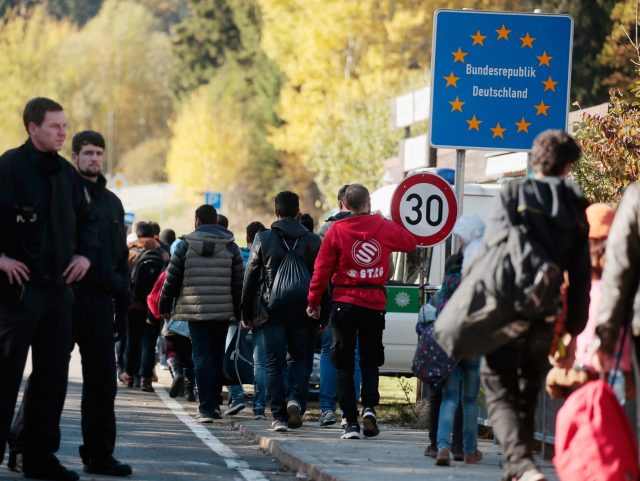The number of Syrians gaining German citizenship tripled in 2021 as many of those who arrived during the migrant crisis became eligible to obtain German nationality.
The Federal Statistical Office of Germany announced that the naturalisation of Syrians had tripled last year, with 19,100 Syrian citizens becoming German citizens in 2021, compared to 6,700 in 2020.
The rise is largely due to the number of Syrians who arrived in Germany during the migrant crisis from 2014 to 2016 as the number of Syrians who have lived in Germany for at least six years rose from 45,300 in 2020 to 105,300 in 2021.
The incoming German leftist coalition government is set to increase immigration by increasing family member chain migration. https://t.co/VRBBGa5qjU
— Breitbart News (@BreitbartNews) November 27, 2021
This year the number of Syrians who have been in the country for at least six years and could qualify for citizenship has drastically increased to 448,800, which could, in turn, lead to a further surge in Syrians gaining German citizenship this year.
While Germany normally requires residency of at least eight years to qualify for citizenship, according to a report from the broadcaster Deutsche Welle, the Syrians granted nationality in 2021 were able to qualify after just six years due to their own successes in integrating into German society.
According to the broadcaster, those who display an adeptness for the German language and are involved in civic commitments are able to become citizens sooner and their family members are also able to become German citizens without needing a minimum number of years living in the country.
Germany is not the only country to see a surge of new citizens from Syria in the years after the migrant crisis.
Over One in Four People in Germany Have a ‘Migrant Background’https://t.co/vGX6i7vor5
— Breitbart London (@BreitbartLondon) April 14, 2022
In Sweden, which also took a large share of asylum seekers from 2014 to 2016, a total of 27,340 Syrians were granted citizenship last year out of the 85,000 people who were granted citizenship.
Sweden has also seen a surge of foreign-born residents eligible to vote in the country’s national election this year, increasing by 200,000 compared to the last election held in 2017. The Scandinavian country, which has a population of just over 10 million people, now has around a million foreign-born residents who are eligible to vote.

COMMENTS
Please let us know if you're having issues with commenting.